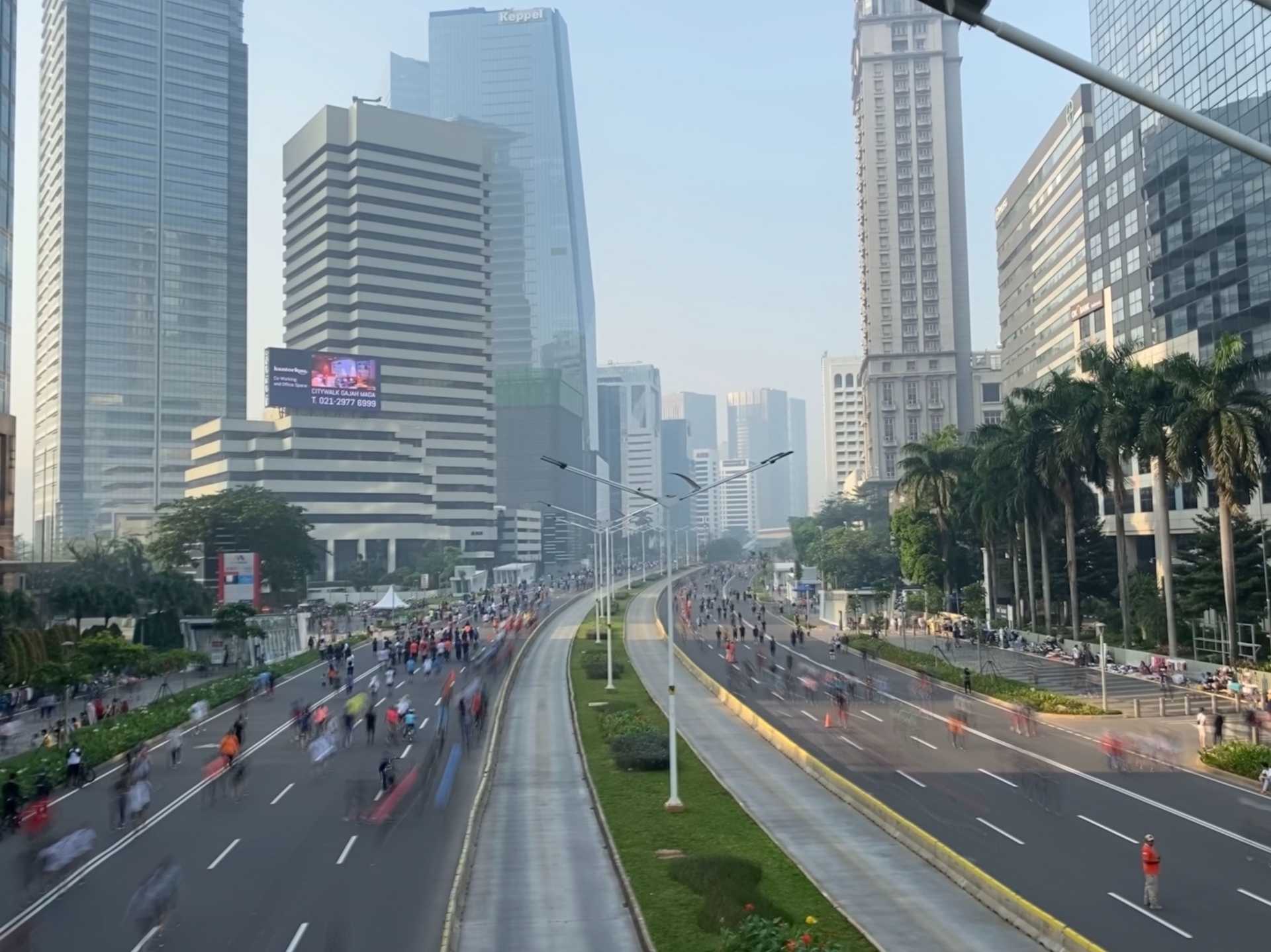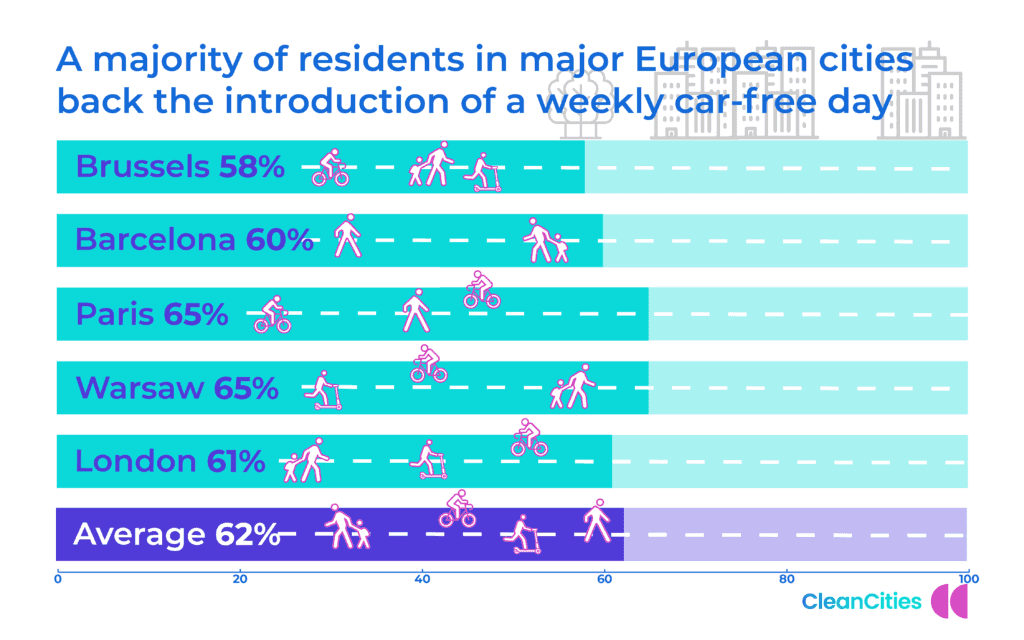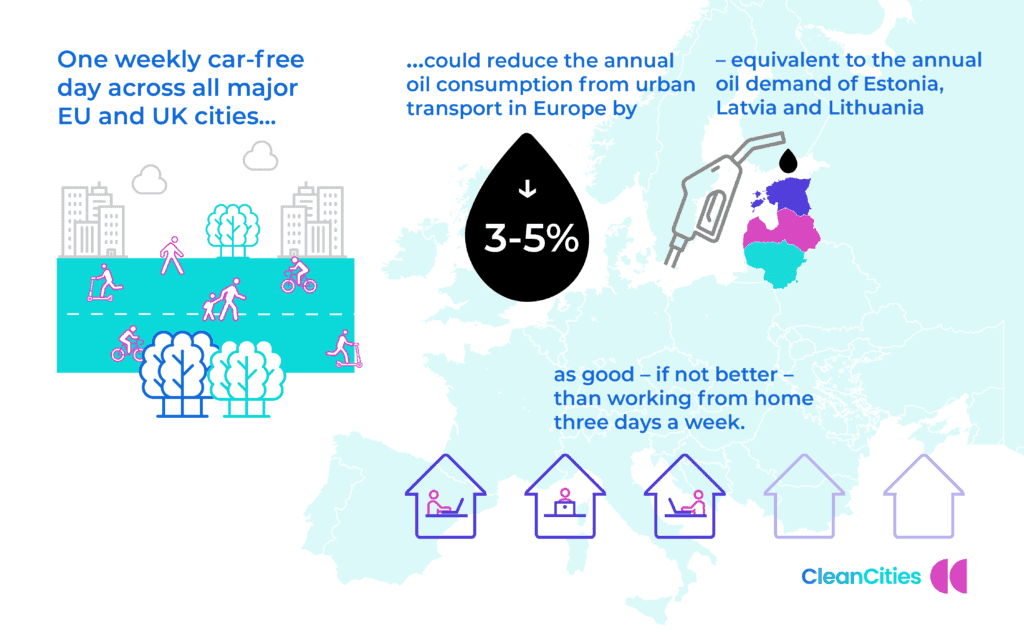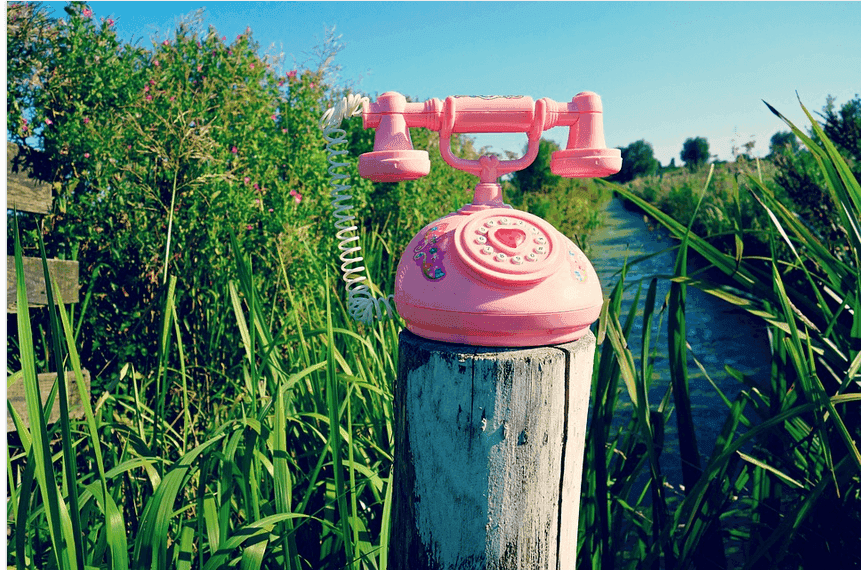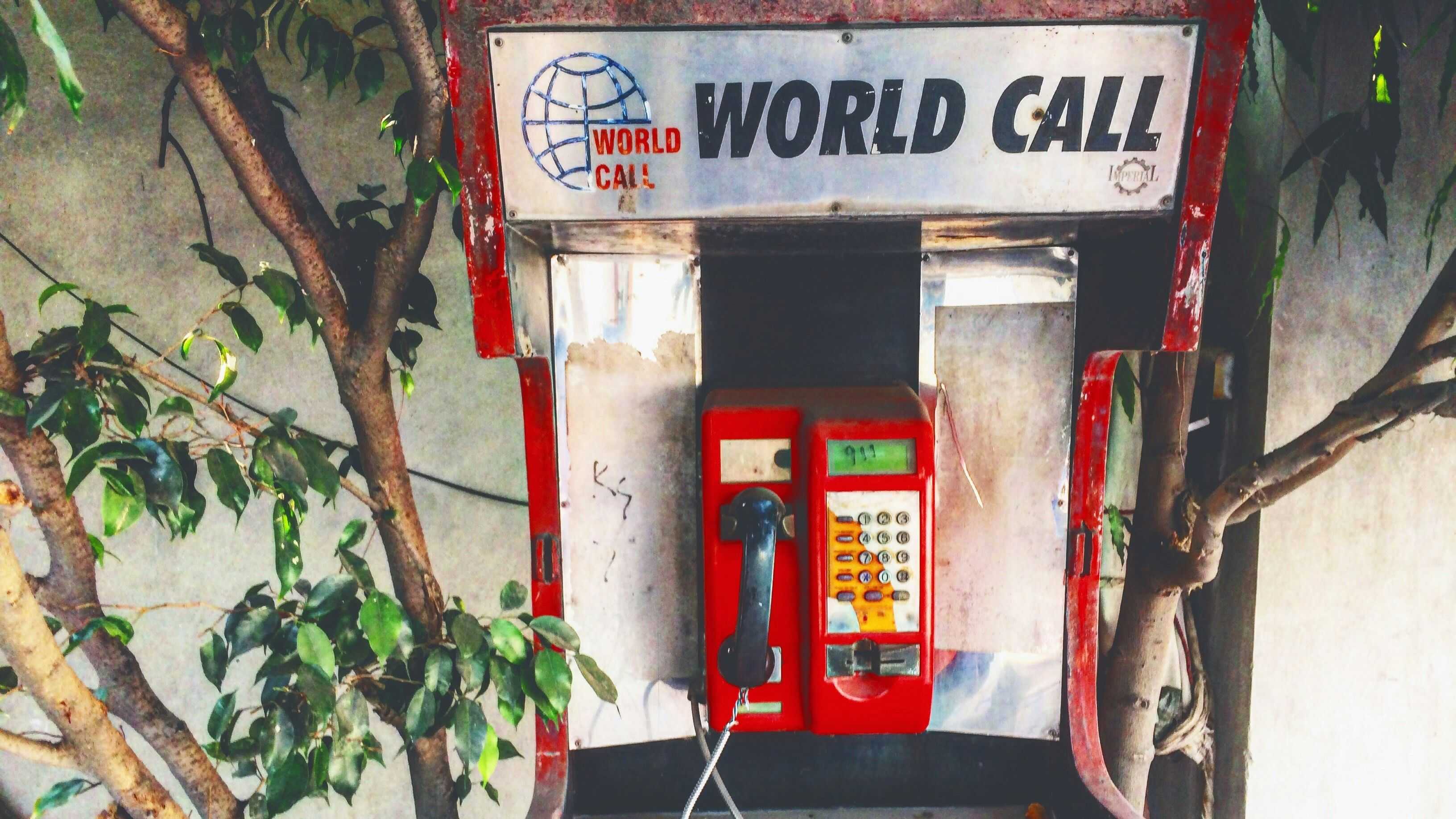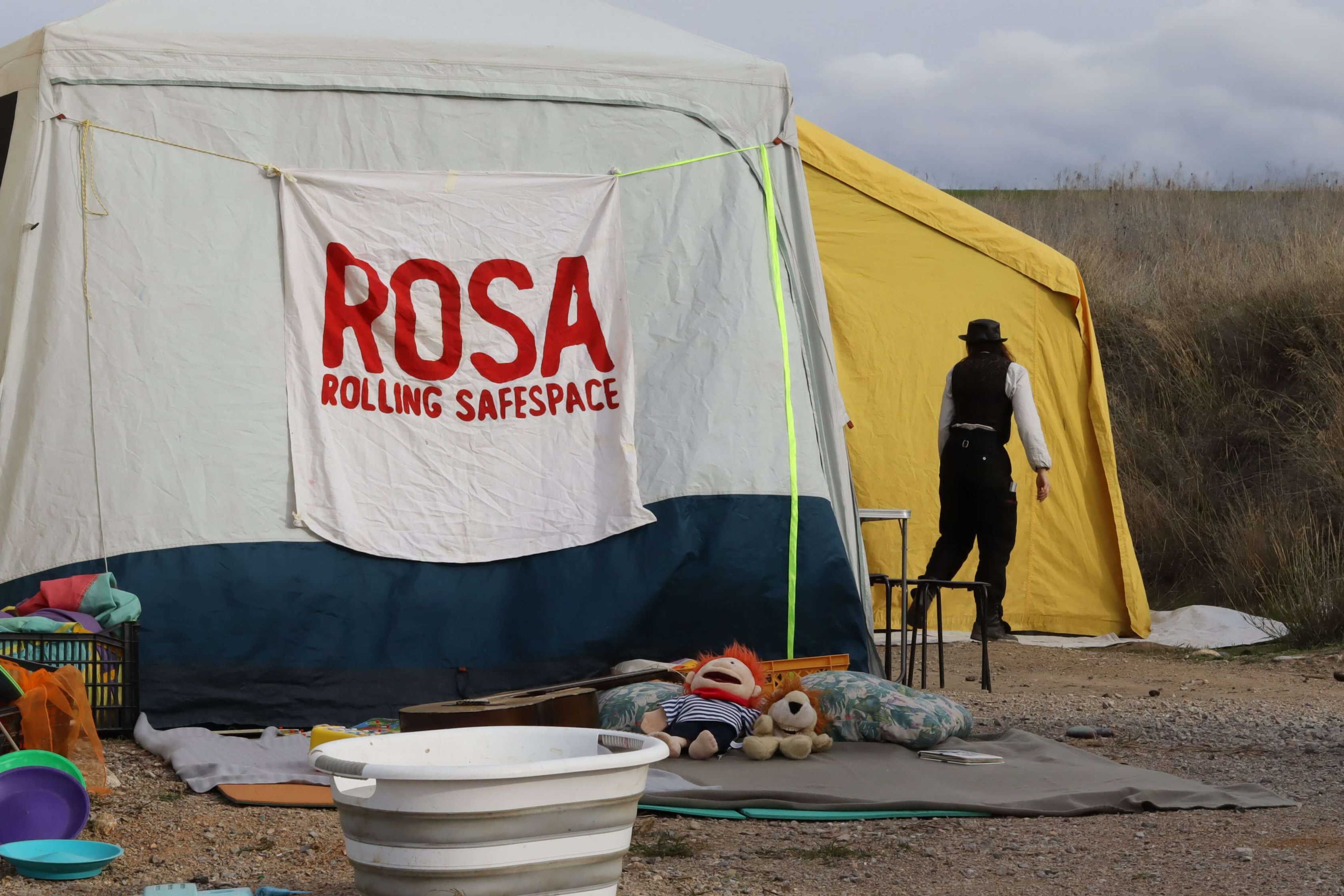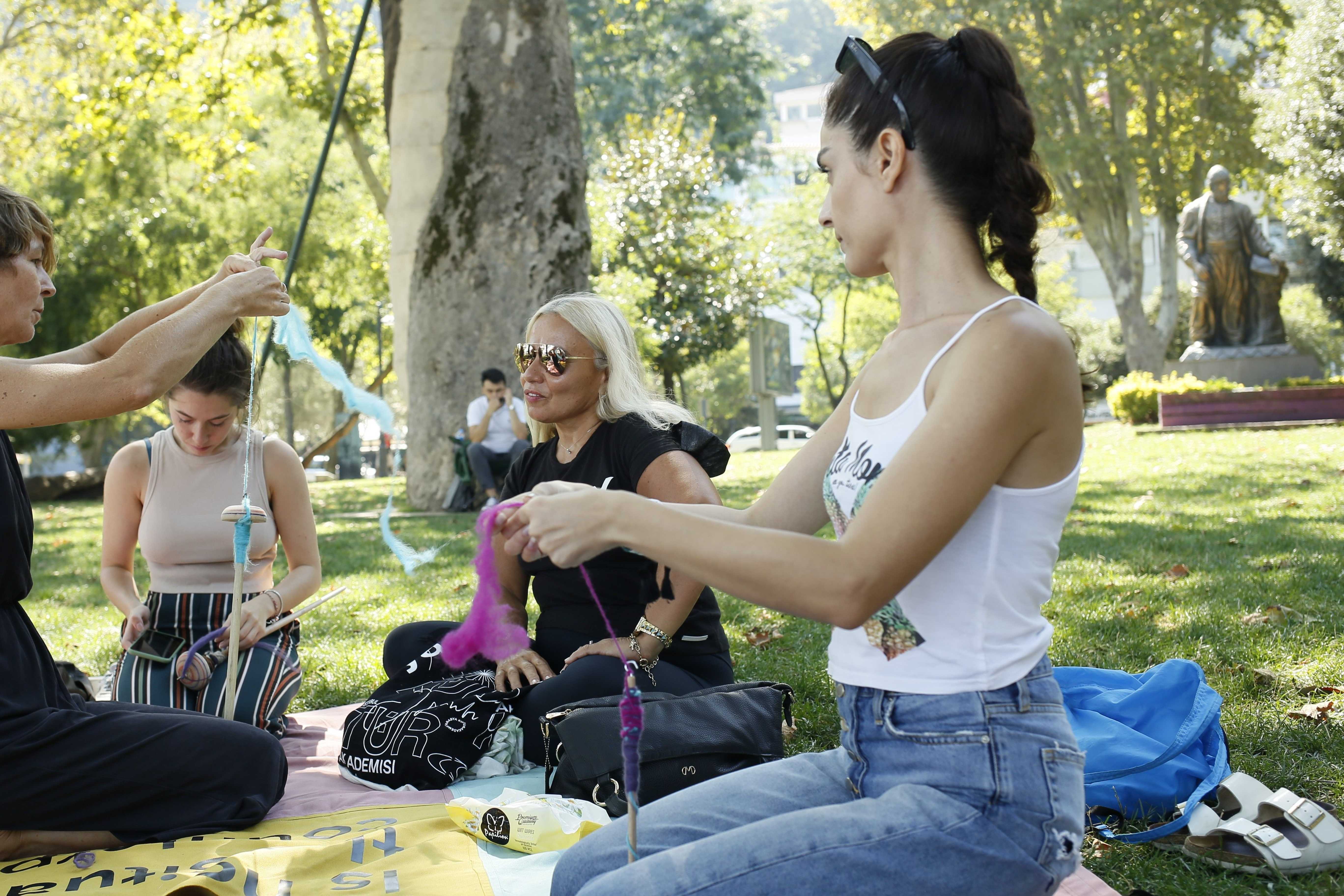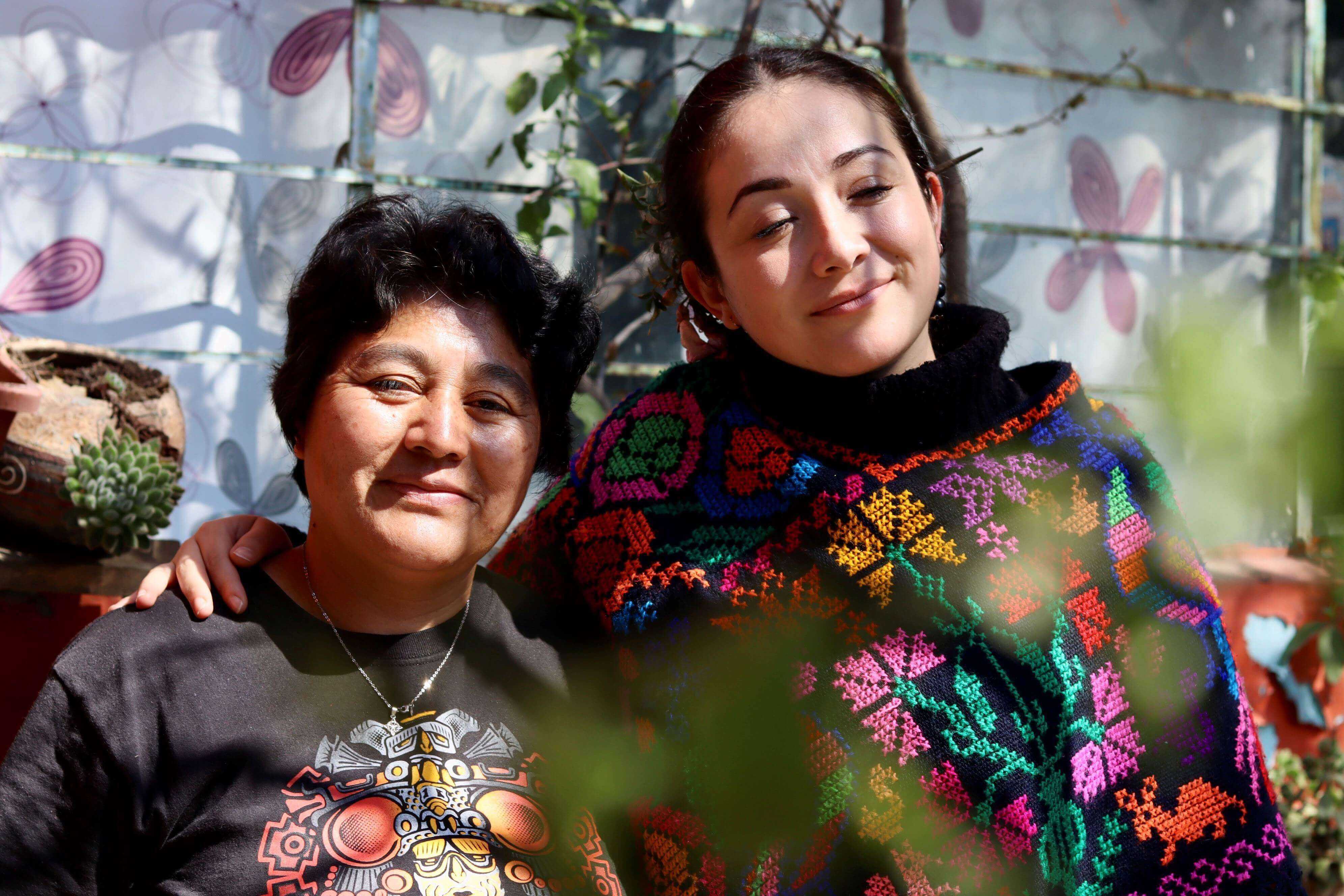What if we could have one car free day a week?
A blog contribution by Barbara Stoll, Director Clean Cities Campaign.
How can we reallocate public spaces for walking, biking, and greenery? How can public transport be better promoted? How can we phase out petrol-fueled cars from cities? Here's a blog contribution by Barbara Stoll, Director Clean Cities Campaign.
July 27, 2023
Jakarta Car Free Day © Photo by a adhia huza on Unsplash.jpg
Project description
A blog contribution by Barbara Stoll, Director Clean Cities Campaign.
On World Car Free Day in September 2020, new research launched by the Clean Cities Campaign reveals that 62% of people in 5 major European cities support the idea of one car-free day a week. Polling from London, Barcelona, Warsaw, Brussels and Paris shows that a solid majority of people were in favor of opening the streets of their cities to walking, cycling and clean air once a week. The idea was most popular in Warsaw, where 65% of respondents to the survey either “strongly supported” or “somewhat supported” one car-free day a week.
This is a representative survey carried out in June 2022 by Kantar Public with n=1000 respondents per city, weighted for age and gender.
Car-free days can cut oil consumption
Car-free days were used in the 1970s when the OPEC oil embargo caused prices to soar – at that time 10 European countries introduced regular ‘car-free Sundays’. As Europe prepared for the introduction of an embargo on Russian oil following the invasion of Ukraine, we were faced yet again with an urgent need to reduce the continent’s fossil fuel dependence.
It’s also been recommended by the International Energy Agency [1] as European countries seek ways to reduce their dependence on oil.
In a new analysis, the Clean Cities Campaign found that one single car-free day implemented in major European cities could save between 541 and 945 thousand barrels of oil. One weekly car-free day in all major EU and UK cities could therefore reduce the annual oil consumption from urban transport in Europe by around 3 to 5%. This is equivalent to the annual oil demand of Estonia, Latvia and Lithuania.
The research shows that this can be as good – if not better – than working from home three days a week.
And there’s more
Car-free days can be implemented quickly. They do not need new infrastructure to be built, or complex regulations to be designed.
This research clearly shows that car-free days are a sure fire way to get cities off oil very fast without any complicated infrastructure or policy change. They are among the best short-term measures that are immediately available, cheap and easy to implement. Cities should consider car-free days as a measure to make an immediate dent in oil consumption but can also deliver a quick drop in toxic air pollution which kills thousands of Europeans a year. Besides, they are a great way to demonstrate to the public what life can be like in cities when the roads are not dominated by cars. The article was first published on cleancitiescampaign.org
From eco-playwriting programs for Algerian students to building a climate justice network in Europe - Get to know our ten Climate Cultures grantees!
+APPLICATION DEADLINE EXPIRED+ The fellowship aims to create spaces of hope and resilience while facing the complex crises of our time. It supports individuals who meet these crises by developing ideas for desirable futures – in the digital space and beyond. This Fellowship is a collaboration with SUPERRR LAB.
The Allianz Foundation in Berlin and the European Cultural Foundation in Amsterdam are collaborating on a new Traineeship program focused on promoting and diversifying philanthropy with a European purpose. Throughout the 8-month pilot program, the Trainees will gain hands-on experience in one of the two Foundations.
The right to freedom of movement is essential for a generation of artists who had to relocate to Europe. Zad promotes the mobility of artists, individuals, and groups by offering financial support to showcase their work in new venues. This assistance can cover travel costs within their current country or across Europe. The program is open for applications year-round.
How does nightlife in Istanbul becomes an expression of identity and solidarity? In an interview, Yelta Köm and Ulya Soley reflect on their time as Tarabya fellows: from artistic research and publications to the “Sound Kitchen”. Find out what they experienced and how to apply for the fellowship.
+APPLICATION DEADLINE EXPIRED+ Allianz Foundation's 2025 funding program is now open for applications. We support initiatives with civil society, ecological, cultural and artistic backgrounds. We place a special emphasis on projects working at the intersection of these areas and pursuing systematic change.
Twelve new projects in this year’s funding program – 'Fixing what's broken. Together!' – started in September. This season we are specifically supporting cooperation projects that address social divisions and ecological crises. Their work stands for solidarity, community spirit, and respect. Get to know the funded projects here.
Democracies require independent, long-term, and sustainably financed journalism, which is crucial for publishing trustworthy content. The Media Forward Fund was launched with this objective in July 2024. The first funding partners have now been announced.
